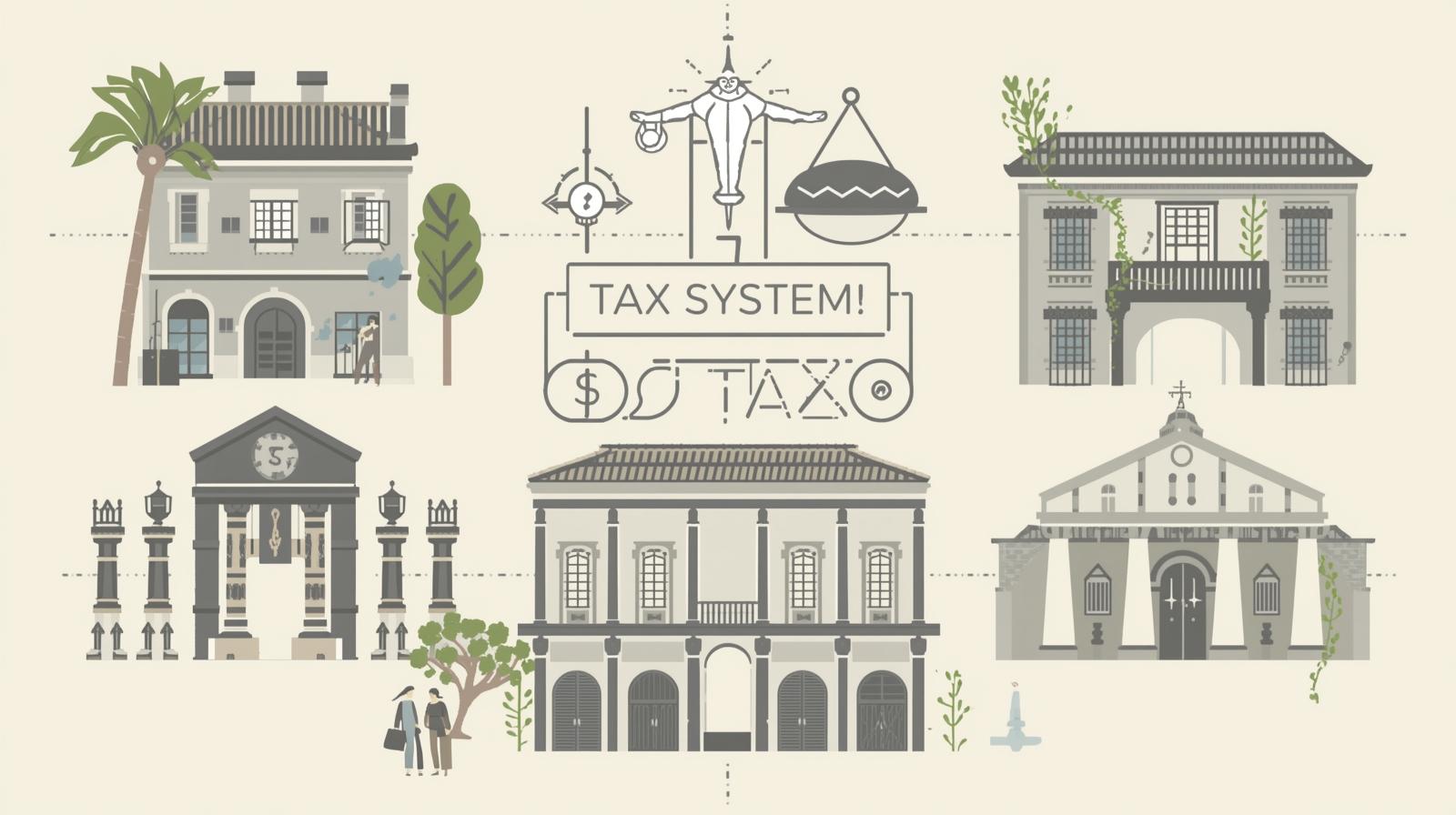
It’s tempting to think that if you move from the UK to Portugal, you’ll escape inheritance tax altogether – but in reality, this process actually works a bit differently, especially when you hold assets across borders.
Throughout this article, we’ll be exploring:
Portugal abolished what we’d call inheritance tax back in 2004, so technically, there is no formal inheritance tax system in place. Instead, what applies is a flat stamp duty – Imposto do Selo – that sits at around 10%.
That’s important because in the UK you’d still pay inheritance tax up to 40% on estates above £325,000. So you can see why Portugal gains attention: no traditional IHT, just this specific inheritance tax at a flat rate, and even then only on some assets.
If we look at Portuguese inheritance tax in practice, it actually applies only to Portuguese assets, so this includes:
Crucially, legitimate heirs – that means spouses, children, grandparents, parents (the closest family members) – are exempt, so they don’t even have to pay this stamp duty. That makes the forced heirship rules part of this: Portuguese law prioritises passing to close family, with those beneficiaries getting to enjoy the exemption.
But if someone outside that circle – “other beneficiaries” like siblings or cousins – receives Portuguese assets, they do face a 10% duty, plus sometimes an extra property‑specific charge (for real estate, another ~0.8%).
If you’re a resident in the UK or at least have a UK domicile, UK inheritance tax might still apply on your inherited assets globally, including those in Portugal, especially if your estate exceeds the nil‑rate band.
So this means that you could actually face double tax implications – UK IHT on your worldwide estate and Portuguese inheritance tax (stamp duty) on Portuguese assets.
But there’s a bit more nuance than that. For example, if you become a Portuguese tax resident for long enough – potentially over ten years – you may escape UK IHT on foreign assets, though local Portuguese tax rules will still govern the tax liability on Portuguese assets.
This is where cross‑border tax implications get complex, and planning an estate plan with an eye for both jurisdictions becomes essential.
How do you actually pay inheritance tax – this stamp duty – in Portugal? Your first step here is just to identify what part of the estate counts as Portuguese assets. After this, if you’re not a direct heir, you’d just pay stamp duty at 10%. And there’s no progressive rate; it stays flat.
If you do need to pay, the process goes through the Tax and Customs Authority (Autoridade Tributária e Aduaneira). You must submit a declaration within three months of the death that details the Portuguese property or assets you inherit.
Pay tax paid through standard channels; if you’re uncertain about the fees or translation costs, a local lawyer can guide you through the paperwork. If you need help getting in touch with a local lawyer, our team at Upscore can connect you with one if you sign up for a free Finance Passport!
Portuguese law offers protection: heirs don’t automatically inherit debts beyond the value of the estate – so your tax burden stays limited to what the estate can cover. That means you typically won’t end up paying more than what’s in your name. Taxes and duties come built into that estate threshold, not extra.
So what’s the real appeal? One of the biggest draws here is that the estate tax exists only in this limited, asset‑specific way, whereas in the UK, your whole worldwide estate might be taxed at up to 40% above allowances. Portugal’s approach spares inherited assets for close families and keeps tax simple on local property.
Moreover, everything from bank accounts and business interests to intellectual property – if held in Portugal and inherited by non‑exempt beneficiaries – falls under this duty, too, but again at a low flat rate. Contrast that with the UK inheritance tax’s complexity and nil bands.
If you’re looking to inherit property in Portugal or plan to move there, set up your estate plan with clarity about location and beneficial ownership. Also, make sure you:
You’ll avoid surprises and limit the tax and customs authority red tape if you get those steps done early on.
And bear in mind any abolished inheritance tax myths – Portugal replaced it with stamp duty, but people still say “no inheritance tax,” and that can trip you up. You want precision in your language and in your planning.
Yes, in a sort of way. Estate tax might suggest a multi-tiered system, but in Portugal, it’s essentially a flat stamp duty, not a progressive inheritance tax.
The succession tax term springs up elsewhere, but here it’s simple: 10% on non-exempt heirs for Portuguese assets, zero for close family.
Keep these in mind when you’re moving forward:
Portuguese vs UK, property vs other.
Who qualifies as a legitimate heir under Portuguese law?
See if tax benefits or obligations favor simplifying your plan – again, our team at Upscore can connect you with one to make the process simpler for you.
Declarations to the tax authority and getting your estate plan in place.
If you’re wondering how inheritance tax in Portugal works for UK citizens, it’s not about avoiding taxes by moving. It’s about understanding that:
It’s about knowing your tax obligations and making sure loved ones inherit with clarity and peace of mind.
If you want a smoother way to manage your finances across borders or just keep everything tidy, whether you live in the UK or Portugal, check out Upscore’s Finance Passport!

If you’ve recently moved to France or are planning a move, you’ll find car ownership here definitely has a bit...
Read More

Spain actually boasts more Blue Flag beaches than any other country in the world – 642 at the last count...
Read More

Weighing up the idea of moving to the United Arab Emirates? Maybe Dubai, maybe Abu Dhabi, or one of the...
Read More